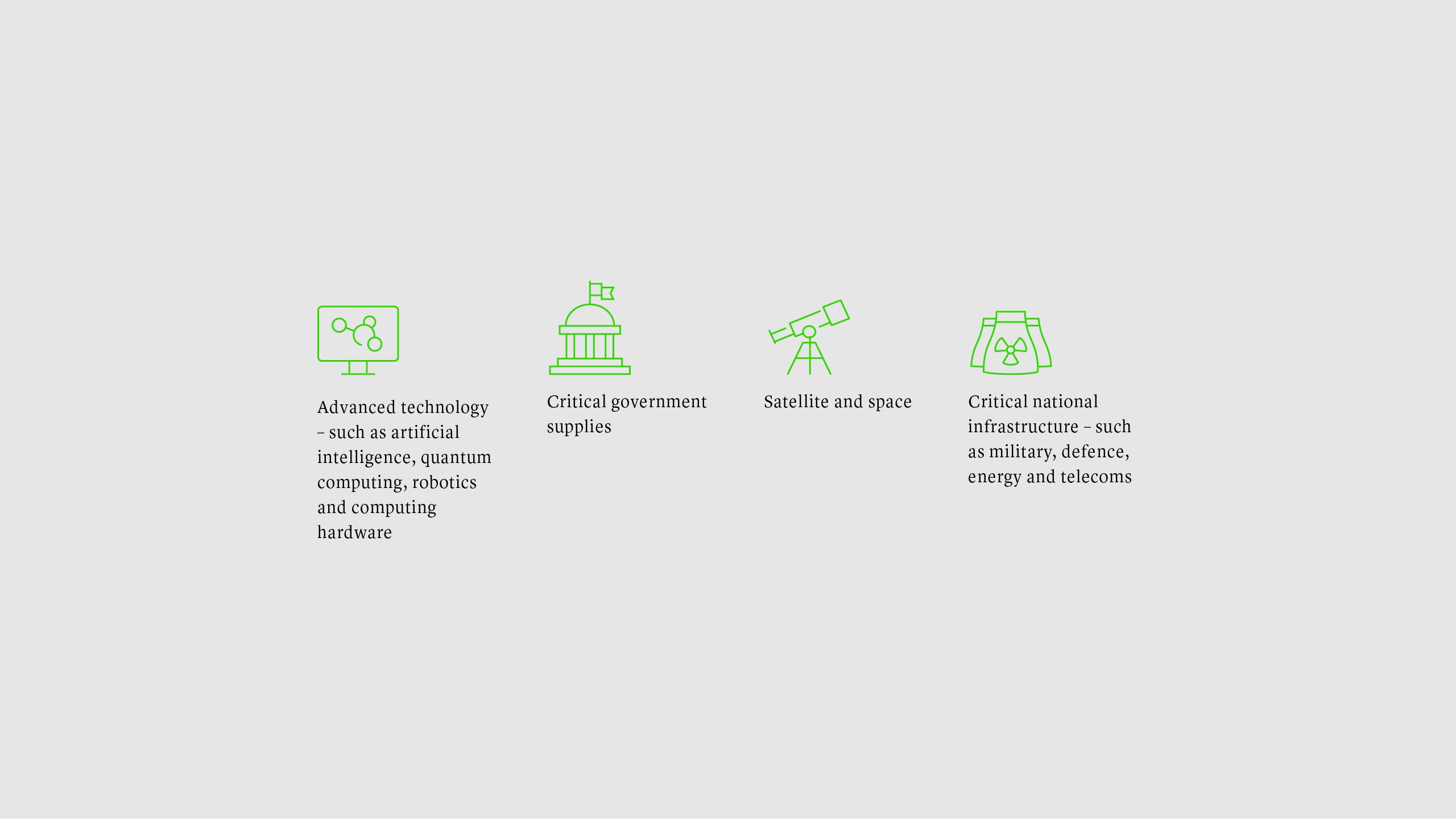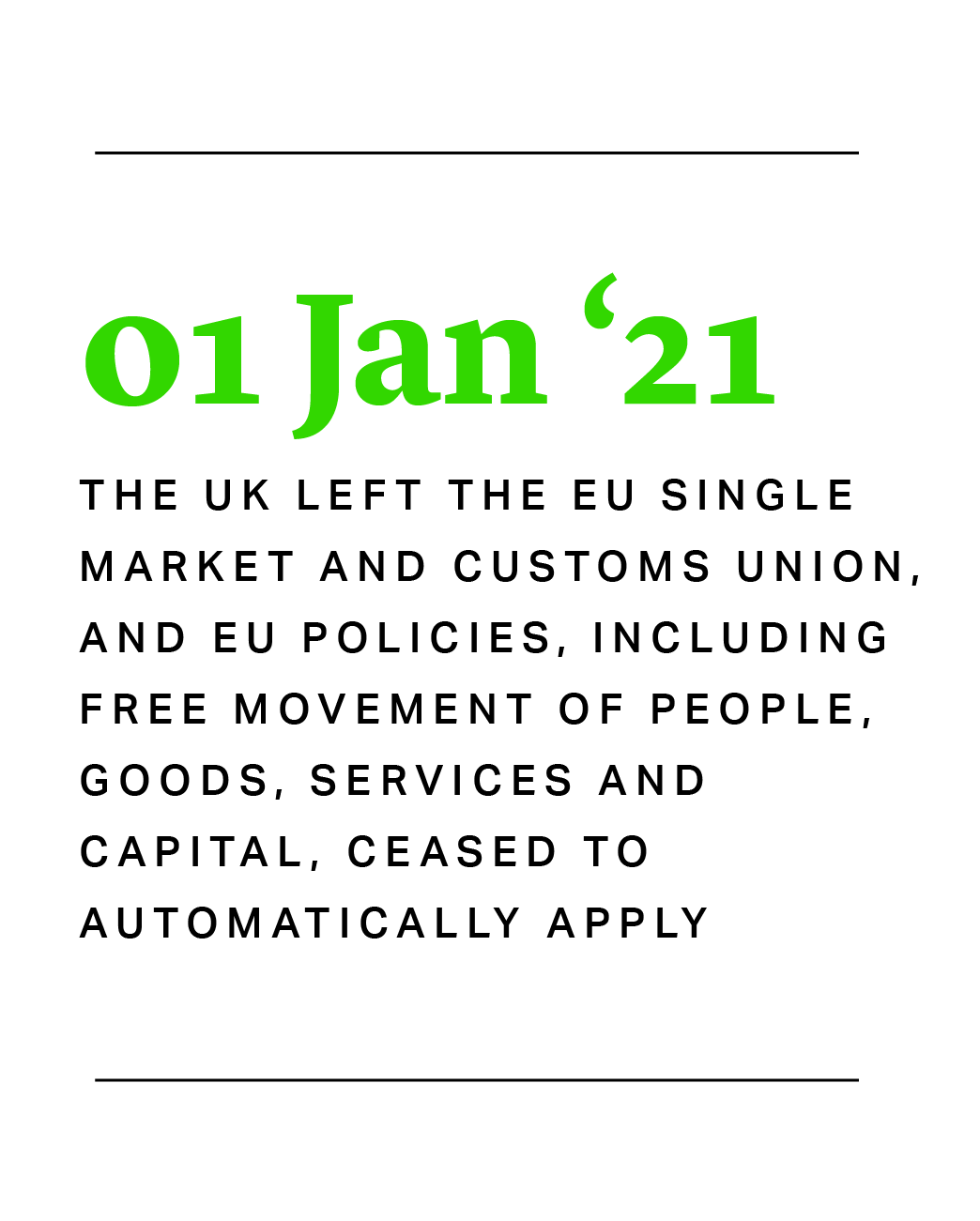Regulatory
Headwinds
Blow Stronger
in 2021

There is no shortage of optimism entering 2021. The introduction of vaccines for COVID-19 combined with stimulus measures have underpinned a strong rebound in confidence, evident in the resurgence in private equity investment. However, uncertainty remains for companies and their investors – economically, as countries contend with rising infections and further shutdowns, and politically, as the UK’s departure from the single market and customs union brings new regulatory standards and trading considerations to the fore.
Below we consider some of the major issues affecting private equity sponsors looking at Europe – protectionist policies, Brexit and the impact of a new US President with different global priorities.
UK Proposes Tougher National Security Regime
COVID-19 accelerated the adoption of measures to scrutinise foreign direct investment in Europe. Following on from the expansion of its public interest rules for investigating mergers and investments in the spring, the UK proposed a new national security screening regime in November. The bill, if passed, would give the government the power to intervene in investments deemed to threaten UK national security.
The proposed regulation has some similarities with the powers wielded by the US Committee on Foreign Investment in the United States (CFIUS), the body which has been overseeing the divestment of the US operations of Chinese-owned app TikTok. The regulations would be enforced by a new UK investment security unit, giving it the power to scrutinise investments in a range of sectors including:



In some respects, the new regulator could even go further than its US peer with powers that extend to investments in intellectual property, and not just investments in corporate entities.
Various consultations are in process, and the draft may yet be amended. We expect the new regulations to come into force in the first half of 2021, however the rules are likely to apply retrospectively to investments made since November 2020, giving the government the power to investigate and set aside deals already agreed. As a result, there is the potential for significant additional costs for acquirers and delays as deals are investigated.
Given the broad scope of the proposed rules and retroactive application, investors in potentially sensitive sectors should consider engaging with the UK government early in the deal process and take the regime into account in negotiations and transaction documents.

Brexit
On 1 January 2021, the UK left the EU Single Market and Customs Union, and EU policies, including free movement of people, goods, services and capital, ceased to automatically apply. The impact of Brexit on private equity is, as yet, uncertain. Some sponsors that previously relied on UK-domiciled structures have already implemented changes, including through the formation of parallel European fund structures (to ensure that capital can continue to be raised from European LPs) or European management vehicles (anticipating the loss of the AIFMD passporting rights relied on by London-based managers). However, the 1,200-page trade agreement finally concluded between the UK and the EU and published on 26 December contained few details on the treatment of financial services, and the two sides will look to conclude a cooperation framework agreement covering financial services by the end of March. If this agreement leaves significant barriers between the UK and the EU, then London’s attractiveness as a hub for private equity could be impacted. By and large, however, appetite for investment into and out of the UK has been little diminished, and indeed the devaluation of the pound (largely as a result of Brexit fears) has increased appetite in some sectors.
As the UK government seeks to replace European trade agreements with bilateral treaties around the world, the impact of Brexit on import and export heavy sectors will continue to be watched closely. For now, however, there is little sign of Brexit-related panic, and most investors are far more focused on the ebb and flow of COVID than the final landing of the Brexit divorce papers.

The Impact of the Biden Administration
The inauguration of Joe Biden as US President is likely to pave the way for change in how the US interacts with Europe and the rest of the world. It may also lead to new policies that make the US either more or less attractive to international investors – potentially drawing capital away from, or pushing it towards, Europe. Biden's newfound majority in the US Senate is likely to ease the passage of more of his programme, whereas a Republican majority in the Senate could have tempered key policies. Important areas to watch include:
M&A
Democratic control of the Senate may encourage policies that create headwinds for M&A and private equity dry powder that needs to be deployed. However, a more predictable and less politicised environment could draw more capital towards the US.
Antitrust
A major swing to more progressive antitrust enforcement is unlikely, while tougher regulation is likely to be incremental rather than radical. The Federal Trade Commission has already been relatively aggressive in recent years on anti-competitive behaviours, but we see the potential for greater scrutiny in pharmaceutical transactions.
Taxation
A democrat win for the Senate has made the prospect of higher corporation tax more likely. Executive pay is also likely to be in the spotlight, as is carried interest which could effectively double to the personal tax level{{1}}{{{Here's why Biden's election may not spur a rush of year-end PE deals</br>Source: Pitchbook}}}. While tax rises have often had retroactive effect, a change in policy affecting private equity is unlikely before the end of 2021.
ESG and Corporate Governance
A Biden Presidency could accelerate the shift from shareholder capitalism to broader stakeholder capitalism. We would also expect to see the administration unwind the ruling that makes it difficult for pension plan fiduciaries to consider ESG factors in their investments, which could be a tailwind for ESG structures and investing in the US.
Michael J. Preston
Partner
London
T: +44 20 7614 2255
mpreston@cgsh.com
V-Card
Gabriele Antonazzo
Partner
London
T: +44 20 7614 2353
gantonazzo@cgsh.com
V-Card
Michael James
Partner




